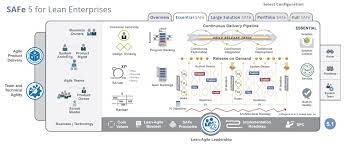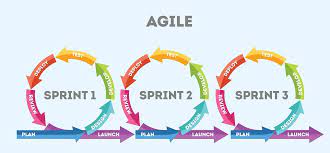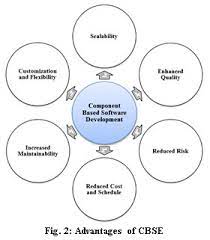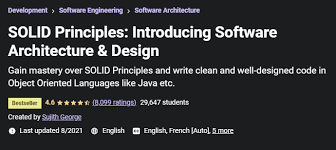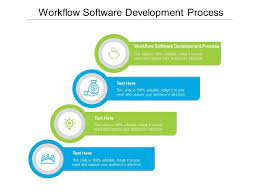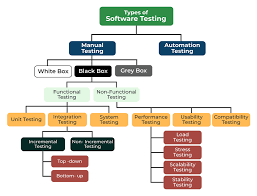Ensuring Security Through Safe Software Development Practices
The Importance of Safe Software Development
Software development plays a crucial role in today’s digital world, powering everything from mobile applications to complex enterprise systems. However, amidst the rush to deliver innovative solutions, the importance of safe software development practices should not be overlooked.
Protecting Data and Privacy
Safe software development is essential for protecting sensitive data and maintaining user privacy. By implementing robust security measures throughout the development process, developers can prevent data breaches, unauthorized access, and other cyber threats that could compromise the integrity of the software and harm users.
Ensuring Reliability and Stability
Safe software development also focuses on ensuring the reliability and stability of the software. By conducting thorough testing, code reviews, and quality assurance checks, developers can identify and address potential vulnerabilities and bugs before they impact end-users. This proactive approach not only enhances user experience but also builds trust in the software’s performance.
Compliance with Regulations
In an increasingly regulated environment, safe software development is critical for ensuring compliance with industry standards and legal requirements. Developers must adhere to data protection regulations, industry-specific guidelines, and best practices to avoid penalties, lawsuits, or reputational damage resulting from non-compliance.
Building Trust with Users
By prioritizing safe software development practices, developers demonstrate their commitment to building secure and reliable products that prioritize user safety. This focus on security not only protects users from potential harm but also fosters trust and loyalty among customers who rely on the software for their daily tasks.
Conclusion
In conclusion, safe software development is a fundamental aspect of creating high-quality products that meet user expectations while safeguarding data privacy and security. By integrating security measures into every stage of the development process, developers can build robust software solutions that inspire confidence in users and contribute to a safer digital ecosystem.
9 Essential Tips for Ensuring Safe Software Development Practices
- Use secure coding practices
- Regularly update software and libraries
- Implement access controls and authentication mechanisms
- Encrypt sensitive data in storage and transit
- Perform regular security assessments and testing
- Follow the principle of least privilege for user access
- Keep logs for monitoring and incident response
- Establish a secure software development lifecycle (SDLC)
- Educate developers on security best practices
Use secure coding practices
Utilizing secure coding practices is a fundamental tip in ensuring safe software development. By following established guidelines and standards for writing secure code, developers can proactively mitigate potential vulnerabilities and reduce the risk of cyber threats such as hacking or data breaches. Secure coding practices involve techniques like input validation, proper error handling, and encryption to fortify the software against malicious attacks. By prioritizing secure coding practices, developers can enhance the overall security posture of their software and instill confidence in users regarding the integrity of the application.
Regularly update software and libraries
Regularly updating software and libraries is a crucial tip for safe software development. By staying current with the latest updates and patches, developers can address known vulnerabilities and enhance the security of their applications. Outdated software and libraries are often targeted by cyber attackers, making them potential entry points for malicious activities. Therefore, maintaining a proactive approach to software updates not only ensures the stability and performance of the application but also reduces the risk of security breaches and data compromises.
Implement access controls and authentication mechanisms
Implementing access controls and authentication mechanisms is a crucial tip in safe software development. By setting up proper access controls, developers can restrict unauthorized users from accessing sensitive data or functionalities within the software. Authentication mechanisms, such as passwords, biometrics, or multi-factor authentication, verify the identity of users and ensure that only legitimate individuals have access to the system. These security measures not only protect user data but also prevent malicious actors from exploiting vulnerabilities and compromising the integrity of the software.
Encrypt sensitive data in storage and transit
To enhance the security of software applications, it is crucial to encrypt sensitive data both in storage and during transit. Encryption serves as a protective barrier, ensuring that even if unauthorized access occurs, the data remains unreadable and secure. By implementing encryption mechanisms, developers can mitigate the risk of data breaches and unauthorized interception, safeguarding sensitive information from potential threats throughout its lifecycle.
Perform regular security assessments and testing
Performing regular security assessments and testing is a crucial tip in safe software development. By conducting thorough assessments and tests at various stages of the development process, developers can identify vulnerabilities, weaknesses, and potential security threats early on. This proactive approach allows for timely mitigation of risks, ensuring that the software remains secure and resilient against cyber attacks. Regular security assessments and testing not only help in maintaining the integrity of the software but also demonstrate a commitment to prioritizing user safety and data protection.
Follow the principle of least privilege for user access
Following the principle of least privilege for user access is a key tip in safe software development. By granting users only the minimum level of access required to perform their tasks, developers can minimize the risk of unauthorized actions and potential security breaches. This practice ensures that users have access only to the resources and functionalities necessary for their roles, reducing the attack surface and enhancing overall system security. Embracing the principle of least privilege not only strengthens data protection but also promotes a more secure and controlled software environment.
Keep logs for monitoring and incident response
Keeping logs for monitoring and incident response is a crucial tip in safe software development. By maintaining detailed logs of system activities, developers can track and analyze events to identify potential security threats, monitor performance metrics, and quickly respond to incidents. These logs serve as valuable resources for troubleshooting issues, conducting forensic investigations, and improving overall system reliability. Implementing a robust logging strategy not only enhances the visibility of system operations but also strengthens the organization’s ability to detect and mitigate security breaches effectively.
Establish a secure software development lifecycle (SDLC)
Establishing a secure software development lifecycle (SDLC) is a critical tip in ensuring safe software development practices. By integrating security measures at every stage of the SDLC, from planning and design to testing and deployment, developers can proactively identify and address potential vulnerabilities, reducing the risk of security breaches and ensuring the overall integrity of the software. A well-defined and secure SDLC not only enhances the security posture of the software but also instills confidence in users regarding the reliability and safety of the final product.
Educate developers on security best practices
Educating developers on security best practices is a crucial tip for ensuring safe software development. By providing training and resources on the latest security vulnerabilities, threat mitigation techniques, and secure coding practices, developers can enhance their awareness and skills in safeguarding software from potential cyber threats. This proactive approach not only strengthens the overall security posture of the software but also empowers developers to make informed decisions that prioritize security throughout the development lifecycle.



